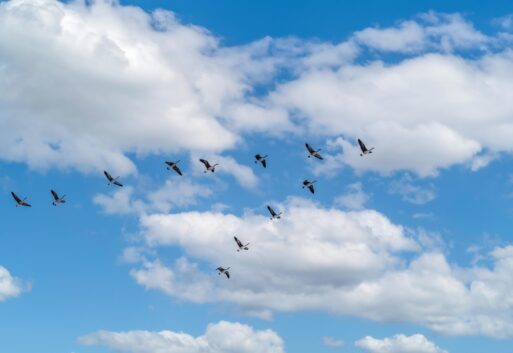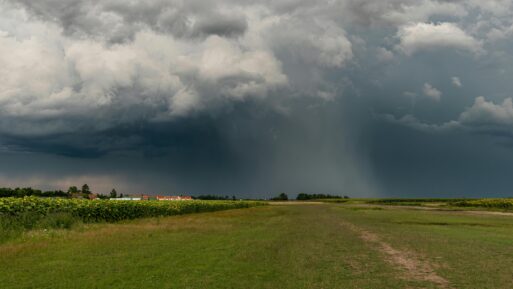
Credit: Bob Felderman via Pexels
You do not have to be good.
You do not have to walk on your knees
for a hundred miles through the desert repenting.You only have to let the soft animal of your body
love what it loves.Tell me about despair, yours, and I will tell you mine.
Meanwhile the world goes on.
Even though it doesn’t speak directly about death, Mary Oliver’s poem “Wild Geese” is a popular choice for readings at funerals and memorials. Its accessible commentary on forgiveness, healing and the cycle of nature brings comfort to many.
Oliver, who lived from 1935 to 2019, grew up in semi-rural suburb of Cleveland, where the Pulitzer Prize-winning poet discovered early on that nature was her muse. She describes the sense of wonder it instilled in her: “When it’s over” she wrote, “I want to say all my life I was a bride married to amazement. I was the bridegroom, taking the world into my arms.”
Her revelation late in life that she had grown up in a dysfunctional home and been sexually abused as a child gives the poem a deeper meaning. Her writing, inspired by solo hikes into nature, allowed her to find strength and solace in her own world. It also helped her navigate society as a lesbian, in a time when same-sex relationships were either deemed immoral or illegal.
Those grieving the loss of a loved one often feel regret or guilt over things done or not done in the relationship. “Wild Geese” offers a kind of absolution in its opening lines:
You do not have to be good.
You do not have to walk on your knees
for a hundred miles through the desert repenting.
Oliver then enfolds her audience in a communal embrace with a nod to shared grief:
Tell me about despair, yours, and I will tell you mine.
Meanwhile the world goes on.

Credit: Péter Kövesi via Pexels
The poem then offers healing images of nature remaining constant; the sun still warms and rain nourishes the land, despite our woes:
Meanwhile the sun and the clear pebbles of the rain
are moving across the landscapes,
over the prairies and the deep trees,
the mountains and the rivers.
Oliver follows with an image of liberation and renewal.
Meanwhile the wild geese, high in the clean blue air,
are heading home again.
And finally, for those mourning a loss who feel disconnected, Oliver offers the reminder that we are all part of a greater community bound by nature.
Whoever you are, no matter how lonely,
the world offers itself to your imagination,
calls to you like the wild geese, harsh and exciting —
over and over announcing your place in the family of things.
It’s as though Oliver, having survived and thrived despite the deep pain and sorrow of her own life, elegantly summed up all that she had learned about surviving in this world: self-acceptance, being true to oneself and building a deep bond with the natural world. No wonder that “Wild Geese” remains a favorite poem of many.

 Wild Geese” by Mary Oliver
Wild Geese” by Mary Oliver


 How Dare You Die Now!
How Dare You Die Now!
 Debating Medical Aid in Dying
Debating Medical Aid in Dying
 “Help Me, Helen”
“Help Me, Helen”














